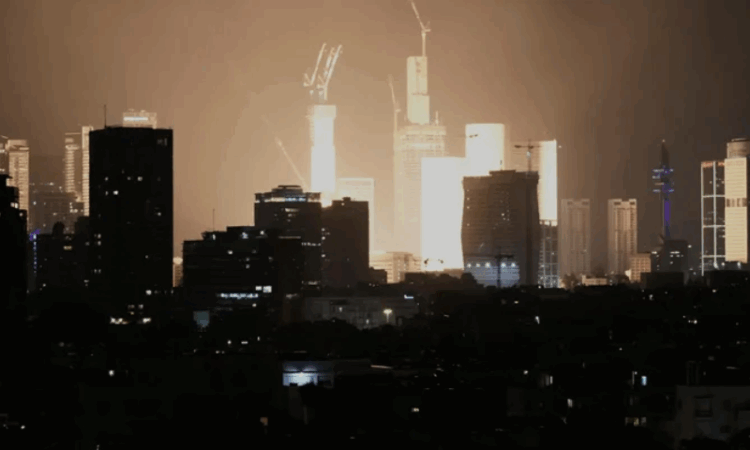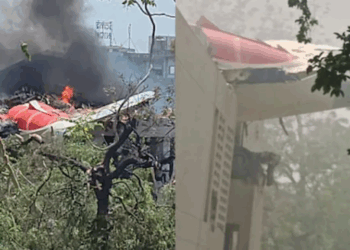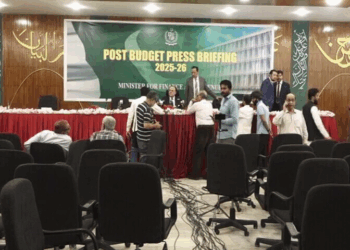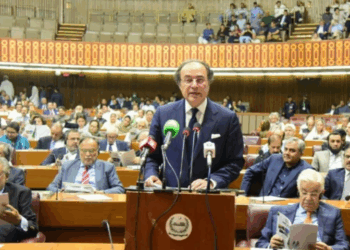Tehran/Tel Aviv, June 14, 2025: The conflict between Israel and Iran entered a dangerous new phase on Saturday, as Israel launched a fresh wave of airstrikes on multiple Iranian targets in retaliation for Iran’s intense missile and drone attacks the previous night. The escalation followed Iran’s unprecedented retaliatory strikes on Israeli territory, which Tehran said were in response to Israeli attacks that killed nearly 80 people, including senior Iranian military officials.
Iran began its retaliation on Friday night, unleashing over 150 missiles and dozens of kamikaze drones under “Operation True Promise 3”, targeting Israeli airbases, military-industrial complexes, and strategic infrastructure. Iranian media claimed successful strikes on Nevatim, Ovda, and Tel Nof airbases, as well as the Israeli Defence Ministry and military sites near Tel Aviv. According to Iran’s Revolutionary Guard (IRGC), the strikes involved precision-guided ballistic missiles and drones aimed at facilities used in previous Israeli offensives.
A senior IRGC commander, General Ahmad Vahidi, stated that Iran would “continue the operation for as long as necessary,” and warned of strikes on regional bases of any state aiding Israel.
On the ground, Israel reported two fatalities and at least 40 injuries in Tel Aviv and surrounding areas. Missile strikes caused severe damage to residential buildings in Rishon Lezion and Ramat Gan. Sirens blared and residents sought shelter as Iranian salvos continued throughout the night. Israel’s Ambassador to the US said the missiles were part of three separate salvos fired directly from Iranian territory.
In swift retaliation, the Israeli military launched a coordinated air campaign on Saturday, involving over 70 fighter jets targeting sites in Tehran, Tabriz, and the provinces of Lorestan, Hamedan, and Kermanshah. Brigadier General Effie Defrin declared the operation had created “aerial freedom of action” from western Iran to the capital, emphasizing that “Tehran is no longer immune.”
Among the Israeli targets were Iran’s air defense systems, missile infrastructure, and sections of its nuclear facilities. Israeli officials claimed the attacks caused significant damage to Natanz and Isfahan, though Iran’s Atomic Energy Organization reported only surface-level damage and insisted there were “no contamination concerns.”
The Israeli military warned that more strikes were imminent, stating that the air force was “set to resume targeting Tehran” and would continue to “damage strategic sites and sources of enemy knowledge.”
Iran confirmed above-ground damage at the Natanz enrichment plant, but claimed limited damage at Fordow and Isfahan nuclear facilities. However, Israeli officials disputed this, asserting the damage would take weeks to repair. Iran also reported downing Israeli drones over its northwest region, calling them “on reconnaissance missions.”
Meanwhile, Iranian media alleged the capture of an Israeli female pilot, which was promptly denied by the Israeli military.
Iran’s civil aviation authority closed the country’s airspace “until further notice,” while Israel shut down Ben Gurion International Airport amid fears of further attacks. Neighboring countries, including Jordan, also temporarily suspended flights.
Domestically, Tehran residents took to the streets celebrating Iran’s military response. Israel’s leadership, including Prime Minister Benjamin Netanyahu and Defence Minister Israel Katz, moved to secure bunkers amid the attacks. Katz warned Tehran had “crossed a red line” by targeting civilians and vowed Iran would “pay a heavy price.”
In turn, Iran’s Supreme Leader Ayatollah Ali Khamenei vowed to bring Israel “to ruin,” while Iran’s Foreign Ministry said continued nuclear talks with the US were now “unjustifiable” in light of the Israeli attacks. Iran also accused Washington of being complicit, a charge the US denied.
World leaders urged restraint. Pope Leo called for “reason and dialogue,” while UN Secretary-General António Guterres demanded an immediate halt to hostilities. The United States and United Kingdom both emphasized the need for diplomacy, even as Washington confirmed it was helping Israel intercept incoming attacks.
As tensions reach a boiling point, concerns are mounting over a broader regional war, the fate of nuclear diplomacy, and the safety of critical energy corridors such as the Strait of Hormuz, which Iran has threatened to close.








